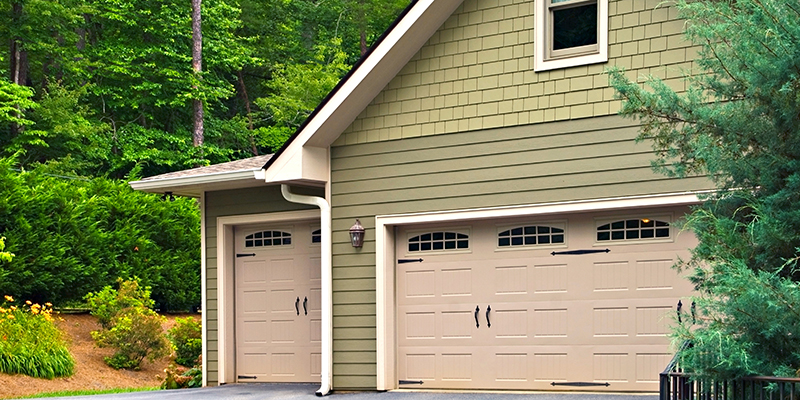A new garage door can improve your curb appeal, increase your home’s value, and provide better energy efficiency.
If you’re considering a new garage door for your home, you probably have lots of unanswered questions.
This helpful guide features a list of some of the most common questions and answers, including garage door troubleshooting tips, so you can find out more before you make a commitment.
How Can I Tell if My Garage Door is Insulating My Home?
Your garage allows air from the outside to get into your home, which could result in a higher energy bill and an uncomfortable interior. To ensure that your garage door is well-insulated, you’ll need to verify the R-value.
The R-value tells you how the door is insulated, and how well it should keep cool or warm air inside your home. The higher the value, the better your garage door’s insulation is.
Ideally, your garage door’s R-value should be listed at around 6.5 or higher for the best level of energy efficiency.
Can I Refinish My Garage Door?
If your garage door needs a bit of TLC, you might be able to refinish it rather than replace it entirely. Doors that are slightly faded or showing signs of rust can easily be repainted with a fresh coat.
If you have a steel door, you should only use exterior latex paint since oil-based paints won’t adhere to the material. For fiberglass doors, you can also paint them using the color of your choice. Wood garage doors can be painted or stained, depending on how you want it to look in contrast with the other colors of your home.
What Material is Best for a Garage Door?
Homeowners shopping for a new garage door usually wonder which material is best. Consider the material itself for your door, but you should also take the thickness of the door into consideration.
The least expensive and thinnest material includes 28-gauge steel, as well as aluminum. If you want something stronger, choose a door constructed of 24-gauge steel or natural solid wood. Fiberglass or composite wood are also affordable options, but they might not offer you the strength and durability you need.
How Can I Perform Garage Door Troubleshooting?
If you think your garage door might be damaged, you can try a few quick garage door troubleshooting tips. First, try to lift the door manually. If it doesn’t work, the springs could be unbalanced.
Another red flag that your door is damaged is if it’s visibly sagging, which means the tension rods need to be adjusted or the door could be rotted. If the door is difficult to open or close in general, there could be problems with the springs or tracks. Loud noises usually indicate a door imbalance or a problem with the garage door opener motor.
Your Garage Door Questions Answered
From garage door troubleshooting to refinish options, use this quick guide to help you determine how to choose a door or fix your existing garage door. Check the material and R-value of your garage door to make sure your home is getting the best level of insulation possible.
If you need a new garage door or service, visit our website and contact us today for a free estimate.

